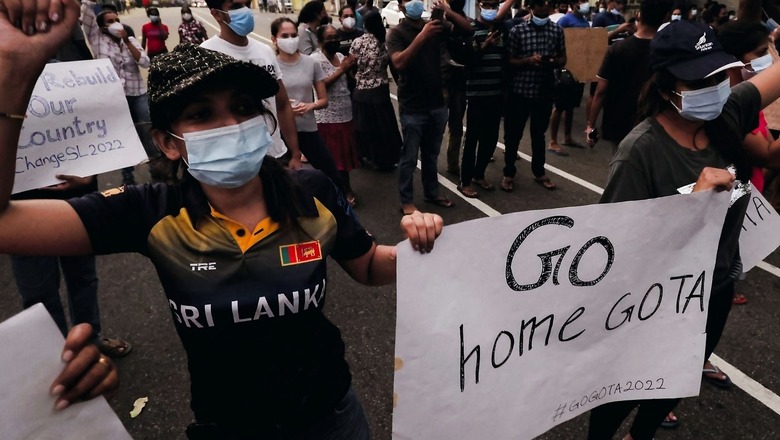
views
Sri Lankans turned out in droves on Sunday to defy a 36-hour curfew imposed to curb “Arab Spring style protests” planned against the government’s handling of the country’s worst economic crisis in history. Most of the demonstrations, held by students, social media activists or even opposition lawmakers, called for President Gotabaya Rajapaksa’s ouster. The government, in turn, barred gatherings and ordered internet service providers to restrict social media access.
While the social media ban was lifted after 15 hours, with many from the government criticising the move, there were reports of riot police using tear gas and water cannons on protesting university students in the central province of the country.
Late on April 1, President Rajapaksa had issued a special gazette notification declaring a public emergency in Sri Lanka with immediate effect. Soon, an order to impose a nationwide curfew followed as protests turned violent in many parts of the island nation. There is severe shortage of food and fuel even as the country has run out of funds to pay for imports. Citizens have suffered for weeks with long queues for fuel, cooking gas, essentials in short supply and long hours of power cuts.
The president, meanwhile, has defended his government’s actions saying the foreign exchange crisis was not his making and the economic downturn was largely due to the Covid-19 pandemic.
Here are top updates as Sri Lanka battles a deepening economic as well as political crises:
- Reports of PM’s resignation ‘false’The prime minister’s office in Sri Lanka has slammed reports of Mahinda Rajapaksa’s resignation as being false, and said there were no such plans yet. Earlier, reports that the prime minister was likely to quit to save the government were doing the rounds.
- Tear gas fired on protesting studentsThe Sri Lankan police fired tear gas and water cannons at hundreds of university students during a protest in the central province despite a curfew. Students from University of Peradeniya took to the streets accompanied by their lecturers. But, protesters were stalled by police barricades and tensions boiled over when they attempted to remove them. Local news reports stated that the situation was tense in the region. Lakshman Kiriella, MP from second-largest city Kandy, said police used tear gas to scatter protesting students.
- Opposition defies curfew ordersLawmakers from the principal opposition party, Samagi Jana Balawegaya, staged an anti-government protest in Colombo against President Rajapaksa’s move to impose a state of emergency and other restrictions. “We will protect democracy in Sri Lanka,” said opposition legislator Harsha de Silva. The lawmakers marched chanting slogans and carrying placards that read: ‘Stop suppression’ and ‘Gota[baya] go home’. They, too, were stalled by police barricades leading up to Independence Square, which was built to commemorate Sri Lanka’s independence in 1948.
- Social media blocked, ban lifted laterThe Sri Lankan government blocked social media sites to prevent masses from gathering in Colombo to protest the government’s failure. The government later lifted the ban after 15 hours. Services of Facebook, Twitter, YouTube, Instagram, TikTok, Snapchat, WhatsApp, Viber, Telegram, and Messenger were restored, an official said.
- President’s nephew calls social media block ‘useless’Sports minister Namal Rajapaksa, who is President Rajapaksa’s nephew, said the social media blockade was useless as many people would use VPN to access sites. He demonstrated the same by tweeting about the blackout, saying he will never condone such a move. “I will never condone the blocking of social media. The availability of VPN, just like I’m using now, makes such bans completely useless. I urge the authorities to think more progressively and reconsider this decision. #SocialMediaBanLK #SriLanka #lka” (sic)
- Calls for all-party interim governmentAmid the deepening economic and political crisis, former minister Wimal Weerawansa called for appointment of an all-party interim government. He said a proposal had been presented to the president and the PM, and that they received a positive response. Weerawansa said the existing cabinet could not function to address these crises. Hence, the call for reaching an all-party or multi-party agreement for an interim government, he added.
- Armed troops man checkpointsEmergency powers in the past have allowed the military to arrest and detain suspects without warrants, but the terms of the current powers are not yet clear. Soldiers with assault rifles and police manned checkpoints in capital Colombo.
- Over 600 protesters arrested for curfew violationsIn the western province, a total of 664 people were arrested for violating curfew and trying to stage an anti-government rally. Nihal Thalduwa, a senior superintendent of police, said 664 people who broke curfew rules were arrested by the police in the Western Province, the country’s most populous administrative division, which includes Colombo. The protest was organised by social media activists against the ongoing economic crisis and hardships heaped on people due to shortages of essentials.
- Cricket star speaks outThe Sri Lankan cricket team’s former skipper Mahela Jayawardene said “certain people” controlling the country’s economy have lost the people’s confidence and must stand down. He said these problems were man-made and could be fixed by the “right, qualified people”. “We then need a good team to give the country confidence and belief. There is no time to waste. It is time to be humble, not make excuses and to do the right thing,” he said.
- Air India scales down flights due to poor demandAir India on Sunday said it will reduce its India-Sri Lanka services from 16 flights per week currently to 13 flights per week from April 9 due to poor demand. “Currently AI is operating 16 flights a week — daily flights from Delhi and nine flights a week from Chennai,” an Air India spokesperson told PTI. In the new schedule, while the frequency from Chennai will remain untouched, flights from Delhi will reduce from seven to four per week, the spokesperson said. AI 283 on the Delhi-Colombo sector will now operate on Mondays, Wednesdays, Fridays and Sundays from April 8 to May 30. AI 284 on the Colombo-Delhi sector will operate on Mondays, Tuesdays, Thursdays and Saturdays from April 9 to May 31.
(With agency inputs)
Read the Latest News and Breaking News here










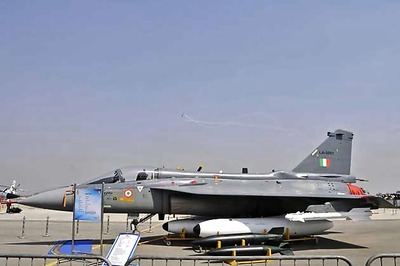


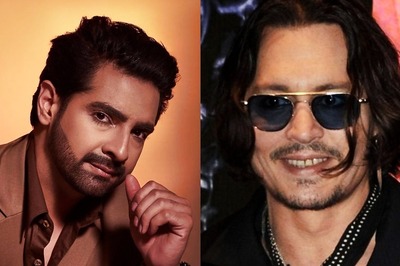
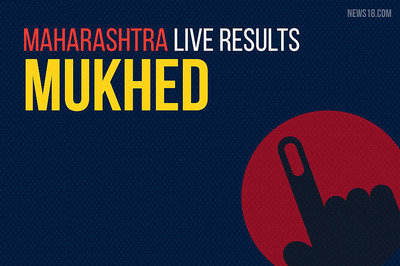

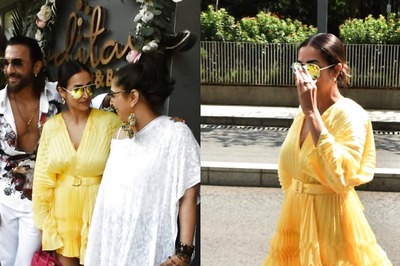
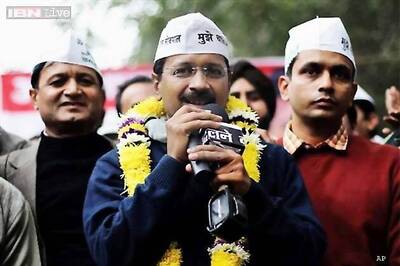
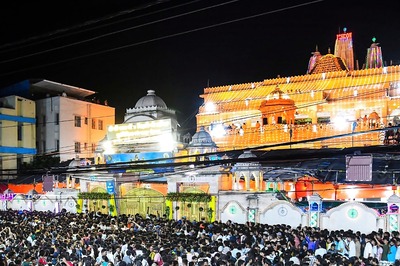
Comments
0 comment